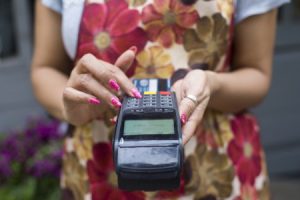
Cashless payments in India are growing at a faster rate than any other country around the globe. The sudden surge has drawn in a number of leading tech companies, funded by rich foreign investors who are all competing for a place in the market.
Digital transactions in India were up by 55% in 2018, compared to 48% in China and 23% in Indonesia, data from the Bank for International Settlements (BIS) showed. Over in the UK, cashless payments climbed higher by only 10%, despite the economy being developed and card transactions already deeply rooted.
India has several traits which usually trigger increased usage in digital payments, including an extensive population with deep mobile phone penetration. Moreover, banking services do not properly serve a large majority of the population. According to consulting firm KPMG, digital payments are expected to grow about 29% on an annual basis in developing markets by 2024.
However, India’s shift to the cashless trend has not always been plain sailing. In 2016, the government announced a sudden ban on certain banknotes, sending tremors through the country’s economy. The policy prompted a cash shortage and led to a surge in unemployment. As a result, consumers redirected their method of payment back to cash.
Since then however, cashless payments have picked up speed. India now boasts over 10 million locations which accept digital payments, KPMG said, up from roughly 1.5 million when the government rolled out the banknote ban. Digital transactions were also boosted by the Unified Payments Interface (UPI), which eases the process of real-time payments between bank accounts.
As digital transactions replace cash all over the globe, payment businesses have become some of the richest and fastest-growing companies around the world. According to KPMG, India is home to over 45 mobile wallet providers, and roughly 50 UPI-based wallet providers.
However, room for growth still remains. India recorded 18 cashless payments on average per citizen last year, compared to 142 in China and 529 in Sweden, according to the BIS.
